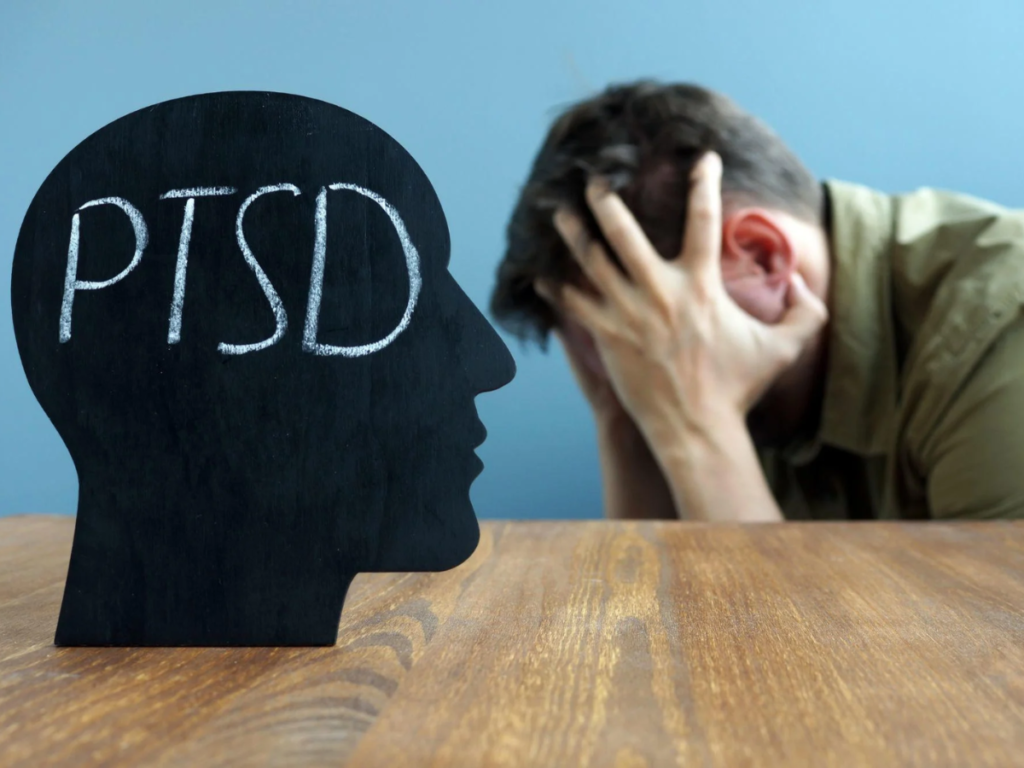
Post-Traumatic Stress Disorder (PTSD) is a mental health condition that can develop after experiencing or witnessing a traumatic event. Understanding the causes and triggers of PTSD is crucial for recognizing early symptoms, seeking timely intervention, and providing effective support to individuals affected by this debilitating disorder.
What Causes PTSD?
PTSD can develop in response to various types of traumatic events that overwhelm an individual’s ability to cope and process the experience. Common causes include:
- Combat and Military Service: Soldiers and veterans often experience traumatic events during combat, such as witnessing violence, being injured, or losing comrades. The stress and danger of military service can contribute to the development of PTSD.
- Sexual Assault: Sexual violence, including rape, molestation, or harassment, can profoundly impact survivors and lead to PTSD. The betrayal of trust and the physical and emotional trauma associated with sexual assault can trigger intense feelings of fear, helplessness, and horror.
- Physical Assault: Being the victim of a violent physical attack, such as robbery, mugging, or domestic violence, can result in PTSD. The sudden and unexpected nature of the assault, coupled with the threat to personal safety, can leave lasting psychological scars.
- Natural Disasters: Survivors of natural disasters, such as earthquakes, hurricanes, floods, or wildfires, may develop PTSD due to the trauma of experiencing or witnessing widespread destruction, loss of life, and displacement.
- Accidents: Severe accidents, such as car crashes, plane crashes, industrial accidents, or serious injuries, can lead to PTSD. The suddenness of the event, the threat to life or physical integrity, and the aftermath of injuries can contribute to psychological distress.
- Childhood Abuse: Children who experience physical, emotional, or sexual abuse, neglect, or prolonged exposure to domestic violence are at increased risk of developing PTSD. The betrayal of trust by caregivers and the chronic nature of the trauma can affect psychological development.
Triggers of PTSD
Triggers are external or internal cues that remind individuals of the traumatic event and elicit intense emotional and physiological responses. Common triggers for PTSD include:
- Environmental Cues: Certain sights, sounds, smells, or locations associated with the traumatic event can trigger flashbacks or intrusive memories.
- Anniversaries: Dates or times of year that mark the anniversary of the traumatic event can evoke heightened emotions and memories.
- Physical Sensations: Bodily sensations, such as pain, fatigue, or stress, that resemble feelings experienced during the trauma can serve as triggers.
- Emotional States: Intense emotions, such as fear, anger, or sadness, that are reminiscent of feelings during the traumatic event can trigger emotional reactions.
Risk Factors for Developing PTSD
While exposure to traumatic events is a primary risk factor for PTSD, several factors can influence an individual’s vulnerability and resilience:
- Pre-existing Mental Health Conditions: Individuals with pre-existing anxiety disorders, depression, or a history of trauma may be more susceptible to developing PTSD.
- Genetic Factors: Genetic predisposition and family history of mental health disorders can contribute to the risk of developing PTSD.
- Social Support: Adequate social support and positive interpersonal relationships can enhance resilience and buffer against the development of PTSD.
- Coping Strategies: Effective coping strategies, problem-solving skills, and adaptive responses to stress can mitigate the impact of traumatic events.
Psychological Impact of Traumatic Events
Experiencing a traumatic event can have profound psychological effects on individuals, even if PTSD does not develop. Common reactions include:
- Acute Stress Reaction: Immediately following a traumatic event, individuals may experience symptoms such as shock, disbelief, numbness, and heightened arousal.
- Adjustment Difficulties: Difficulty adjusting to changes in daily life, disruptions in relationships, and challenges in maintaining routines and responsibilities.
- Mood Changes: Fluctuations in mood, ranging from sadness and anger to guilt and shame, as individuals process their emotional responses to the trauma.
- Hyperarousal: Persistent feelings of anxiety, irritability, hypervigilance, and difficulty concentrating or sleeping.
Seeking Help for PTSD
Early intervention and appropriate treatment are crucial for managing PTSD symptoms and improving quality of life. Treatment options may include:
- Psychotherapy: Cognitive Behavioral Therapy (CBT), Eye Movement Desensitization and Reprocessing (EMDR), and other evidence-based therapies can help individuals process traumatic memories, change negative thought patterns, and develop coping skills.
- Medications: Antidepressants, particularly SSRIs and SNRIs, may be prescribed to alleviate symptoms of depression, anxiety, and intrusive thoughts associated with PTSD.
- Support Groups: Peer support and group therapy provide opportunities for individuals with PTSD to share experiences, receive validation, and learn from others coping with similar challenges.
- Mind-Body Techniques: Practices such as yoga, mindfulness meditation, and relaxation exercises can promote stress reduction, emotional regulation, and overall well-being.
Summary
Understanding the causes, triggers, and psychological impact of traumatic events is essential for recognizing and addressing PTSD effectively. Dr. Neha Gupta, a leading neuropsychiatrist based in Pimple Saudagar, Pune, emphasizes the importance of early intervention, personalized care, and comprehensive treatment approaches in managing PTSD. By raising awareness, promoting resilience, and supporting individuals affected by PTSD, we can work towards improving mental health outcomes and fostering recovery.
For individuals seeking support or more information on PTSD, consulting with a qualified healthcare provider experienced in trauma and mental health is essential. With ongoing research and advancements in treatment, there is hope for healing and renewed resilience in those navigating the challenges of PTSD.




